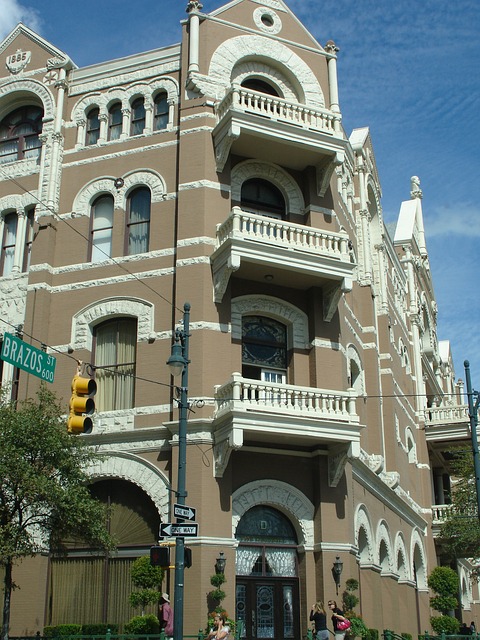Keeping your house safe and sound is your top priority. Maintaining your rental property’s roof is important due to its essential functions. People tend to forget that it could be a vulnerable structure requiring special care.
Of course, it’s a much better idea to have everything checked and repaired on time rather than dealing with a much more costly problem in the future, especially before the new tenants move in.
Sagging gutters and leaking roofs will damage the property’s insulating abilities and will lead to even more severe property damage. This is why checking the roofing system of your rental property is so important.
Here is some great advice on maintaining it properly and bringing yourself peace of mind.
Why is Roofing System Maintenance Important
There are numerous reasons why roofing system maintenance is so important.
A ‘’healthy’’ roof maintains the property’s insulation, leading to lower tenant electricity bills.
Also, a well-maintained roof adds value to the property because a good-looking roof will attract more quality tenants.
However, imagine looking for a rental property and seeing a leaking, deteriorating, or dirty roof. It will be an instant signal to the tenant that this landlord doesn’t pay much attention to his property, and they’ll simply move on to the next place.
The entire property structure is in danger if something happens to the roof because it is the one that protects it from harsh weather conditions and UV rays.
There are various reasons why your roof may be damaged – bad weather, poor ventilation, waterlogging, ageing shingles, or simply lack of maintenance.
So, roof inspections and on-time property maintenance should always be on your to-do list to ensure the longevity of the roof’s lifespan.
Tips on Maintaining Rental Property’s Roofing System
Indeed, noticing roof issues isn’t as easy as noticing other issues on the property. That’s why we mentioned the importance of regular roof inspections.
Maintaining the rental property’s roof is more than just your responsibility if you’re a landlord. It’s your legal obligation because most habitability laws state that your rental must be ‘’habitable’’ or ‘’liveable’’.
Again, you surely want to protect your investment and maximise your income, so here are some useful tips on maintaining the roofing system on your rental property:
- Schedule Regular Roofing System Inspections. Like any other property structure, your roofing system should also have regular, scheduled inspections. Detecting roofing issues on time will cost you less than finding out about them when they’ve already caused severe damage to other areas and structures on the property. According to experts, you should schedule roofing system inspections at least two times a year. Don’t treat your roof poorly; pay attention to it only when a problem appears, fixing it only when necessary. Bring yourself some peace of mind with regular roof inspections.
- Remove Nearby Overgrown Tree Branches. Undoubtedly, old trees are very appealing, and tenants often notice them. But did you know that they are also a threat to the structures of your rental property? Pruning them will make them prettier and healthier and prevent the branches from rubbing onto the roof, leading to leaks and other issues. Tree branches also provide access to rodents to get to the roof and cause problems. So, if you notice any branches hanging above or near the roof, trim them! A good thing to remember is that if you don’t have space to keep all your tools, you can always use a storage unit.
- Clean The Roof and Gutters Regularly. A clean roof and gutters are also essential to ensure the roof’s longevity. So, keep the gutters free of leaves and other debris. Each season brings different types of debris to the gutters that accumulate over time. So, what can clogged gutters cause? Well, they’ll prevent the accumulated water from flowing away from your property, allowing it to seep underneath the roof. If you don’t take care of the gutters regularly, waterlogging will creep into the walls or even the property’s foundations and start decaying them.
- Repair Any Property Roof Damage. When having a roof inspection, make sure you check it both on the outside and inside. Because, sometimes, there are some signs of leaks that cannot be detected on the outside. Check the ceilings and the attic. Look for wet spots, cracked paint, puddles of water, strange smell, and other signs of water penetration. If you notice anything that doesn’t seem right, contact roofing experts immediately to ensure you have everything taken care of when it’s not too late! Making minor repairs will improve the lifespan of your investment and keep tenants satisfied.
- Check the Roof Insulation and Ventilation Regularly. As mentioned above, the roof is an important factor when it comes to the efficiency of your HVAC and the overall electricity costs. The insulation is what helps in allowing the air inside the property, which leads to temperature regulation inside. But if your roof is damaged, according to the basic laws of thermodynamics, the warm air will leave, and the colder air will enter the property. But the insulation is not everything that should be inspected regularly. You should also pay equal attention to the ventilation. Problems with the ventilation can lead to mould problems, wood rot, and more.
Who is Responsible for Roof Maintenance
Generally, the landlord is the one responsible for taking care of any damages related to the property’s structure, such as the roof, walls, and foundations.
The tenants are responsible for repairing damages to the rental’s structural components as long as they’re the ones that caused it.
Tenants are also responsible for performing end of tenancy cleaning when moving out. Otherwise, it’s the landlord’s responsibility to address any issues related to the property’s structure.
So, if you’re a landlord, ensure you regularly schedule roof system maintenance to avoid costly repairs and unhappy tenants.
Conclusion
As you’ve probably figured out already, preventative roof maintenance is crucial when you want to increase your investment’s lifespan, keep your rental property insulated, make it more appealing to tenants or potential buyers, and, most importantly – avoid spending money on high-cost repairs.
Property repairs and maintenance should always be on your list as a landlord if you want to welcome happier tenants for a long time.
It’s always best to contact property maintenance services to receive the best advice and help.


